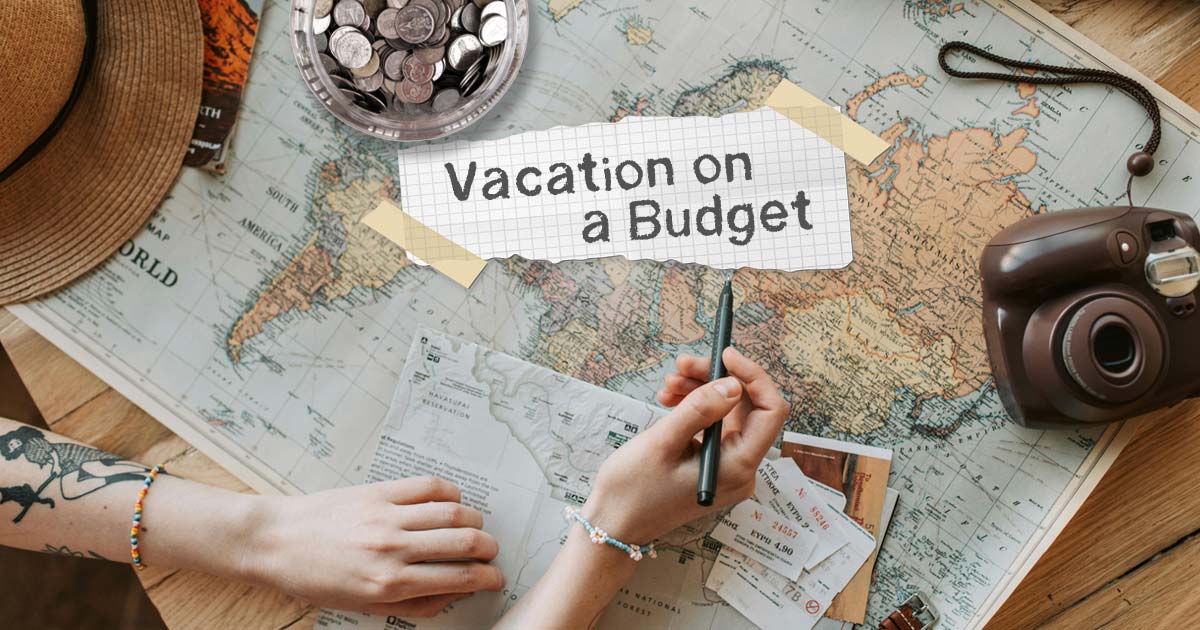Organizing an Affordable Vacation

While scrolling through social media feeds, you are likely to stumble upon visually appealing posts of friends and inspirational tourist traveling and living in luxurious hotels. While such images may tend to make one run to a tourist center, many would prefer to roam around the world making them penniless.
It just means that making the budget on the trip and looking for creative ways to cut costs helps to achieve and maintain financial stability and enhance the trip as a whole. Soon you will be posting wonderful travel photos indeed if you can come up with economical strategies and some proper planning.
Make a Budget
Making a budget is the first and most important step in organizing a trip. This is the starting point for all of your travel plans. First, evaluate your cash resources and classify them into three groups:
- Pre-trip expenses: Expenses incurred such as transportation, passport fees, travel insurance, visas, and vaccines that must be paid before leaving.
- Out-of-pocket costs: The total sum of money that you consumers on accommodation, adventurous activities, and food during your stay.
- Emergency funds: Emergency funds- for instances such as lost cash, outstanding expenses or any other accidental occurrence.
One of the easiest and more effective methods for monitoring your expenditure is through the use of spreadsheets. They help to look for the potential savings and determine areas where changes may be required based on this illustration.
Shortlist of Favorite Locations
Start honing your vacation itinerary by selecting a smaller number of your top travel destinations. This first list serves as a guide to help you arrange your funds and gives you the freedom to select locations that suit your interests and budget.
For example, make a list of places along the shore if you picture a peaceful beach vacation. Next, look into places that are giving good bargains to get the most of your budget.
Think About Local Vacations
It’s not always economical to travel overseas. But there are plenty of options for local investigation. Seize the opportunity to take a staycation and explore the sights in your city and the surrounding areas. You can have satisfying experiences without going too far if you spend most of your money on entertainment rather than travel and housing.
Other choices are to take a road trip, camp in adjacent national parks, go hiking, arrange local excursions, explore neighboring beaches, stay in hostels in nearby cities, and visit museums and art galleries.
Determine Crucial Experiences
Decide what your top priorities are to make the most out of your holiday. Set aside money for pursuits or outlays that most closely align with your passions. To maximize happiness, match your spending to your interests, whether that means treating yourself to opulent lodging or making educational investments like scuba diving lessons.
Depending on what interests you and what the location has to offer, give comfort, experiences, or mementos priority over other factors.
Make a Plan
Plan your travel well in advance. The closer a trip date gets, the more expensive hotels, activities, and transportation get. Start looking as soon as possible to get good deals and avoid the hassle of last-minute bookings. Plan your schedule carefully, including when to do activities, purchase tickets and excursions, set up transportation, and leave enough time in between events for leisure.
Take Off-Season Trips
There are significant savings when you travel during off-peak seasons. The cost of lodging and activities is usually less in vacation areas since they may offer competitive prices due to decreased demand. Off-peak travel also means less tourists, less stress, and more chances to engage with the locals in a genuine way.
Recognize that different locations have different seasons. Tropical locations flourish in the winter, but spring break and summer vacation are the busiest times of year for family-friendly travel destinations.
Utilize Your Travel Benefits
Examine the advantages of travel rewards programs, especially those associated with travel rewards credit cards. These credit cards provide cashback, points, and miles for regular and vacation spending. Reward points can be accumulated and used to pay for a variety of travel-related costs, including lodging and airfare.
Examine Your Flight Options
Travel expenses include a substantial amount for airfare. Use techniques such as choosing weekday travel and booking flights during off-peak times to find cheap tickets. Keep an eye out for changes in ticket costs, and if you want to circumvent dynamic pricing algorithms, try browsing in private mode.
Make Use of Travel Search Engines
Use the power of search engines for travel to find affordable flights, lodging, rental cars, and activities. Look into websites such as Skyscanner, Tripadvisor, and Musement in order to take advantage of sales. Be adaptable while making travel arrangements to take advantage of last-minute deals and chances.
Examine Other Options for Accommodations
Hotels are still a popular option, but there are other affordable options with distinctive experiences offered by alternative lodgings. Think about choices like couch-surfing for visitors looking for unique lodging, hostel stays for those on a tight budget, and rental properties through websites like Airbnb and Vrbo.
Save Wisely
Make conserving money for your trip expenses a priority instead than using credit. Create a savings plan as soon as possible, cutting back on wasteful spending and perhaps taking on extra work to increase your income. Remain committed to your financial objectives while visualizing the fulfilling trips you will take after building up your money.
Look for Inexpensive Entertainment
Select complimentary or low-cost entertainment options to enhance your schedule. Use local knowledge to find undiscovered attractions and cultural activities. Additionally, group reservations may result in savings on flights, tours, and activities, increasing overall affordability.
You may have amazing travel experiences without losing your happiness or your capacity to maintain financial stability by putting these cost-effective strategies into practice.

Associate Writer • Environmental Technology and Sustainability Writer
Sophia writes articles on innovations in green technology, including ca energy, sustainable materials, and explores how technology can address environmental challenges and promote sustainability.

